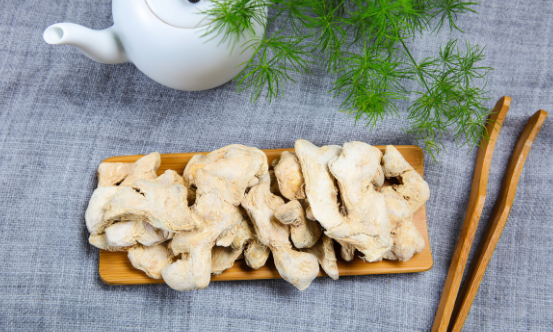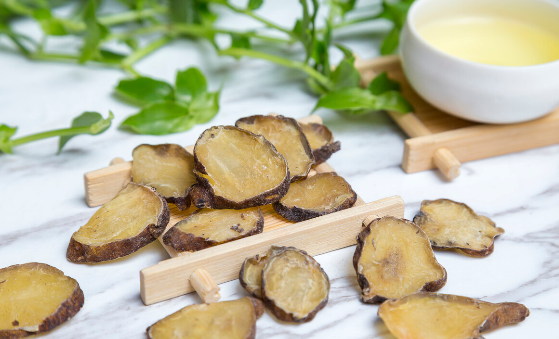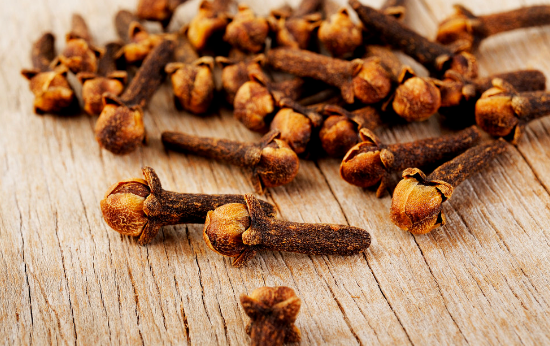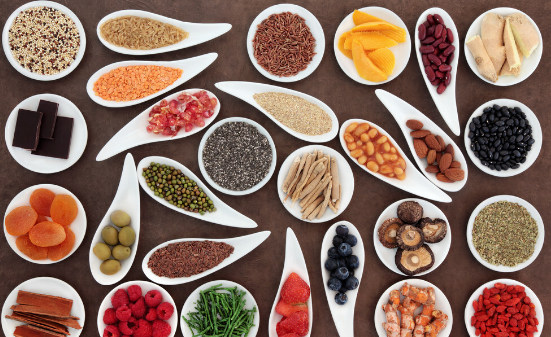Traditional Chinese Medicine expert shares health knowledge
Click below to follow for free ↓↓↓
Do you know about Spleen and Stomach Yang Deficiency Cold Syndrome?
Hello everyone, today I will talk about Spleen and Stomach Yang Deficiency Cold Syndrome and the medicines that can be used for regulation. Spleen and Stomach Yang Deficiency Cold refers to the deficiency of Spleen and Stomach Yang, leading to various cold symptoms and deficiency symptoms, such as sensitivity to cold, cold limbs, edema, easy diarrhea, abdominal pain and bloating, stomach cold pain, preference for warmth and pressure, nausea and vomiting, poor appetite, and thin, watery stools. The tongue may appear pale and swollen or have tooth marks, and the pulse is deep, slow, and weak.

Why do you develop Spleen and Stomach Yang Deficiency Cold Syndrome?
Those with Spleen and Stomach Yang Deficiency Cold are often found among people with irregular diets, mainly related to dietary habits and congenital constitution. Alternatively, the patient may initially have Spleen Qi Deficiency that was not properly regulated, which further developed into Spleen and Stomach Yang Deficiency Cold. If you prefer to consume raw and cold foods, it can damage the Yang Qi of the Spleen and Stomach, leading to insufficient Yang Qi in the middle burner and the emergence of deficiency cold symptoms; or having a weak constitution from birth or malnutrition during growth can lead to a congenital deficiency of Spleen and Stomach Yang.
What are the dangers of Spleen and Stomach Yang Deficiency Cold?
Patients are prone to diarrhea, which can occur even after consuming slightly cold or greasy foods, and may lead to persistent diarrhea; moreover, their immunity decreases, making them susceptible to various gastrointestinal diseases, such as gastritis and gastric ulcers. Symptoms vary from person to person, and patients should seek medical attention promptly for professional diagnosis and treatment.
How to use medicine to improve Spleen and Stomach Yang Deficiency Cold?
For Spleen and Stomach Yang Deficiency Cold, the basic principle of treatment is to warm and tonify the Spleen and Stomach. On one hand, for symptoms such as loss of appetite, pale complexion, thin body, fatigue, and unformed stools caused by food stagnation due to Spleen and Stomach Yang Deficiency Cold, treatment should focus on invigorating the stomach and aiding digestion, primarily using herbs that tonify Spleen Qi such as Ren Shen (Ginseng), Dang Shen (Codonopsis), Bai Zhu (White Atractylodes), and Shan Yao (Chinese Yam), along with digestive herbs like Shen Qu (Medicated Leaven) and Mai Ya (Barley Sprout), and Spleen-invigorating herbs like Chen Pi (Aged Tangerine Peel), Ji Ke (Bitter Orange), and Sha Ren (Cardamom). On the other hand, for symptoms such as abdominal distension and cold pain, nausea and vomiting, cold hands and feet, abdominal pain, and a pale tongue with no thirst, treatment should focus on warming the middle and dispersing cold, commonly using combinations of Spleen tonifying and warming herbs.

7 Commonly Used Traditional Chinese Medicines for Improving Spleen and Stomach Yang Deficiency Cold
Wen Wei Shu Granules — Warms the stomach and relieves pain.
Main ingredients include Fu Zi (Aconite), Dang Shen (Codonopsis), Huang Qi (Astragalus), Bai Zhu (White Atractylodes), Chen Pi (Aged Tangerine Peel), Rou Gui (Cinnamon), Shan Yao (Chinese Yam), Sha Ren (Cardamom), Rou Cong Rong (Cistanche), Shan Zha (Hawthorn), Wu Mei (Mume), and Bu Guo Zhi (Psoralea).
Indications: Can be used for chronic gastritis, discomfort from consuming raw and cold foods, and cold pain in the stomach.
Clinical experience:
Through relevant clinical studies, it has been concluded that Wen Wei Shu Granules have significant clinical efficacy in treating functional vomiting due to Spleen and Stomach Yang Deficiency Cold.
Dosage: Dissolve in hot water, 1-2 bags per dose, twice a day.
Warm Wei Shu Le Granules — Can warm the middle, tonify deficiency, promote Qi, invigorate blood, harmonize the liver and spleen, relieve pain, and promote tissue regeneration.
Main ingredients include Huang Qi (Astragalus), Dan Shen (Salvia), Yan Hu Suo (Corydalis), Bai Shao (White Peony), Rou Gui (Cinnamon), Sha Ren (Cardamom), Ji Shi Teng (Clematis), Bai Ji (Bletilla), Pao Jiang (Dried Ginger), and Wu Bei Zi (Galla Chinensis).
Indications: Used for Spleen and Stomach Yang Deficiency Cold and liver-spleen disharmony type gastric ulcers, chronic gastritis, duodenal ulcers, with symptoms of abdominal pain, acid reflux, and preference for warmth.
Dosage: Dissolve in hot water, 4g per dose, three times a day, or as directed by a physician.
Fu Fang Chun Sha Granules — Can promote Qi, warm the middle, relieve pain, reduce bloating, and invigorate the Spleen and Stomach.
Main ingredients include Sha Ren (Cardamom) leaf oil, Bai Zhu (White Atractylodes), Hua Ju Hong (Citrus Peel), and Zhi Ke (Bitter Orange).
Indications: Used for stomach pain and indigestion caused by Spleen and Stomach Yang Deficiency Cold.
Dosage: Dissolve in hot water, 10g per dose, three times a day, or as directed by a physician.

Fu Zi Li Zhong Wan — Can warm the middle and strengthen the Spleen.
Main ingredients include Fu Zi (Aconite), Gan Jiang (Dried Ginger), Bai Zhu (White Atractylodes), Dang Shen (Codonopsis), and Gan Cao (Licorice).
Indications: Used for Spleen and Stomach Yang Deficiency, vomiting, diarrhea, cold abdominal pain, and cold hands and feet.
Clinical experience:
Through randomized controlled studies, it has been concluded that Fu Zi Li Zhong Wan combined with moxibustion at Shen Que point can treat severe diarrhea in patients with Spleen and Kidney Yang Deficiency.
Dosage: Oral administration. For water honey pills, 6g per dose; for small honey pills, 9g per dose; for large honey pills, 1 pill per dose, 2-3 times a day, or as directed by a physician.

Ding Kou Li Zhong Wan — Can warm the middle, disperse cold, and tonify the Spleen and Stomach.
Main ingredients include Ding Xiang (Clove), Dou Kou (Cardamom), Bai Zhu (White Atractylodes), Gan Jiang (Dried Ginger), Dang Shen (Codonopsis), and Zhi Gan Cao (Honey-fried Licorice).
Indications: Can be used for Spleen and Stomach Yang Deficiency, vomiting, diarrhea, indigestion, and abdominal cramping pain.
Dosage: Oral administration. 1 pill per dose, twice a day; or 6g per dose, twice a day.
Xiao Jian Zhong Jiao Nang — Warms the middle, dispels cold, and alleviates acute pain.
Main ingredients include Gui Zhi (Cinnamon Twig), Sheng Jiang (Fresh Ginger), Bai Shao (White Peony), Da Zao (Jujube), Zhi Gan Cao (Honey-fried Licorice), and Yi Tang (Maltose).
Indications: Used for Spleen and Stomach Yang Deficiency, preference for warmth and pressure, abdominal pain, reduced appetite, acid reflux, and palpitations.
Dosage: Oral administration. 2-3 capsules per dose, three times a day, or as directed by a physician.
Ren Gui Li Zhong Wan — Can warm the middle, disperse cold, and eliminate dampness to relieve pain.
Main ingredients include Ren Shen (Ginseng), Fu Zi (Aconite), Rou Gui (Cinnamon), Bai Zhu (White Atractylodes), Gan Jiang (Dried Ginger), and Gan Cao (Licorice).
Indications: Used for Spleen and Stomach Yang Deficiency, abdominal pain and diarrhea due to insufficient Yang Qi, gastric cold vomiting, cold damp hernia, cold hands and feet, and menstrual pain due to cold.
Dosage: Taken with ginger soup or warm water; 1-2 pills per dose, 1-2 times a day, or as directed by a physician.

What to pay attention to in daily life for regulating Spleen and Stomach Yang Deficiency Cold?
Here are three suggestions for patients:
Regular diet — Eat regularly, ensure adequate rest, pay attention to healthy eating, avoid binge eating or dieting, and maintain a balanced diet with easily digestible foods.
Keep warm — Especially keep the abdomen warm, avoid consuming raw and cold foods, cold drinks, and frozen foods; ensure adequate dietary fiber intake, and encourage the use of medicinal meals that tonify the Spleen and Stomach, such as Poria and Chinese Yam congee.
Enhance constitution — Pay attention to nutrition, exercise regularly, maintain a positive and optimistic mood, and avoid excessive emotional fluctuations.
Note: Some text and image resources in this article are sourced from the internet. The purpose of reposting this article is to convey more information. If there are any errors in source attribution or infringement of your legal rights, please notify us immediately, and we will delete it promptly and apologize to you.
Previous highlights:
10 Traditional Chinese Medicines for Weakness, don’t choose the wrong one
Ten Traditional Chinese Medicines for Activating Blood and Resolving Stasis
Enhance immunity! TCM practitioners reveal 6 major herbs against viruses
Director Zhao popularizes health and wellness knowledge
Click below to follow for free ↓↓↓
Editor shares good articles with friends
1. So precious! Over 800 folk remedies, no illness cannot be treated, save for future use!
2. Long-term use of Atorvastatin and Aspirin may lead to 4 situations, stop medication promptly, don’t take chances
3. 9 effective remedies for insomnia, the best medicine for sleep disorders
Like is a form of encouragement Share to spread joy

